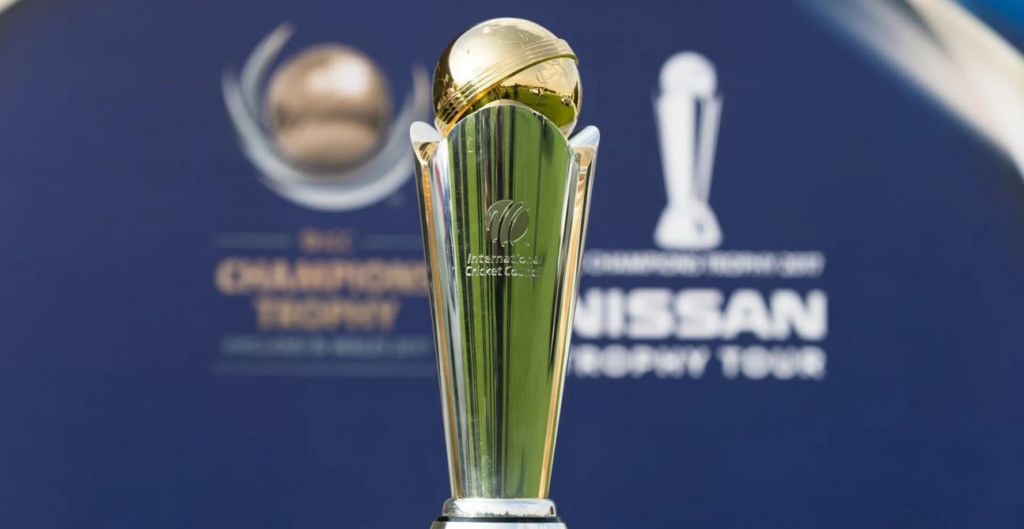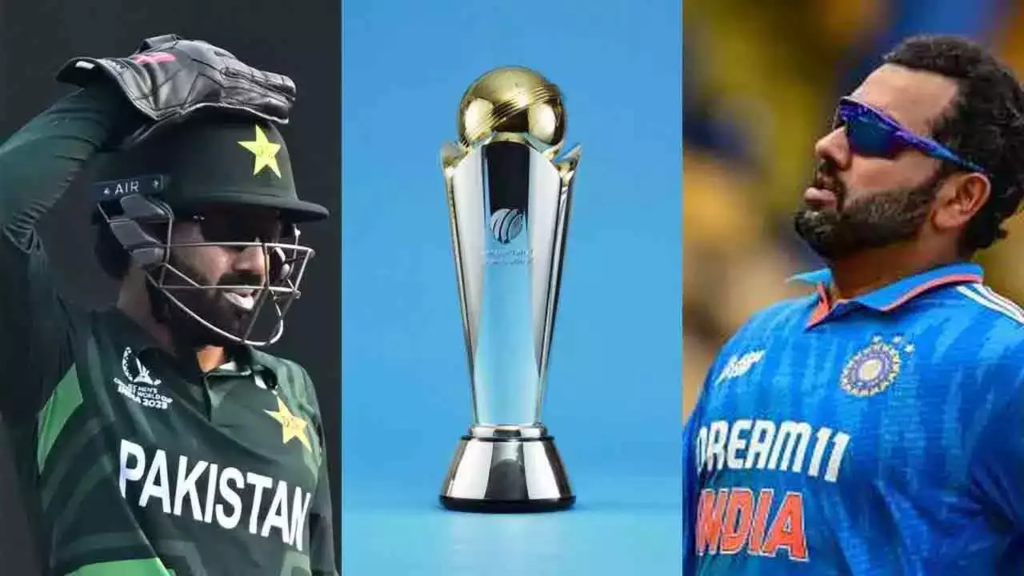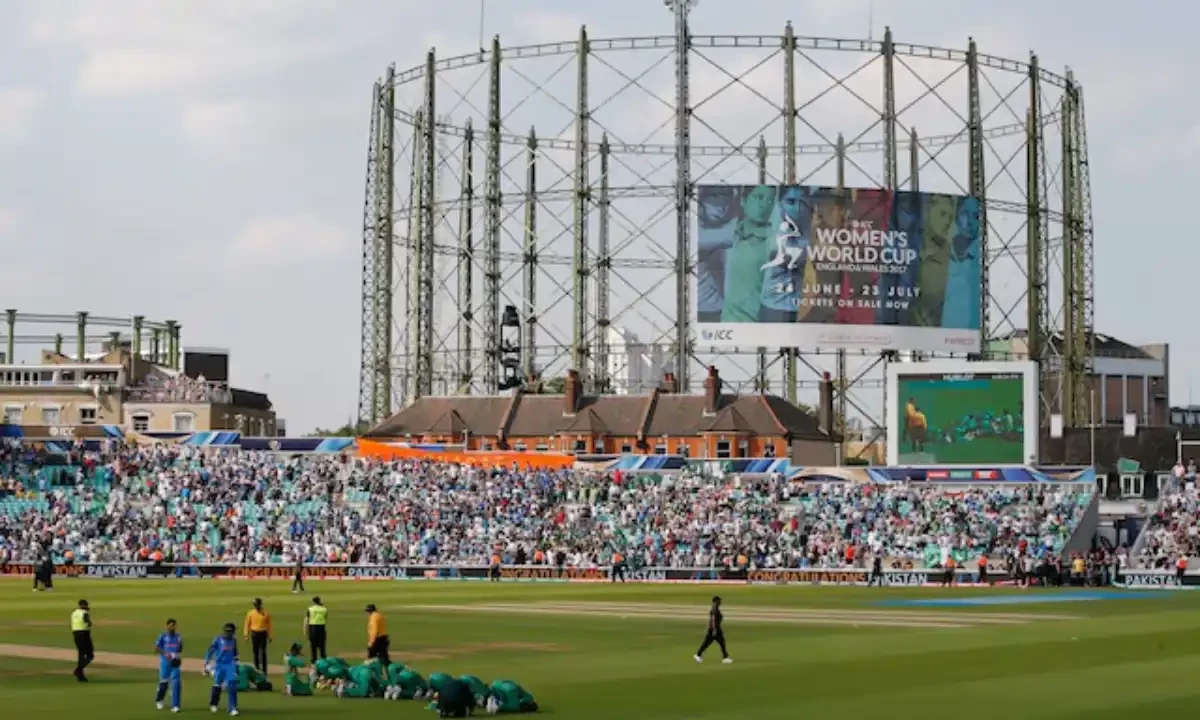The Pakistan Cricket Board (PCB) has raised significant concerns after India’s Refusal to Visit Pakistan for the upcoming Champions Trophy scheduled for next year. Despite numerous diplomatic and sporting gestures, the deteriorating political relations between the two nations have complicated any attempts to resolve the issue.
Pakistan has now asked the International Cricket Council (ICC) for an explanation regarding India’s stance, as the fate of the tournament hangs in the balance.
Political Tensions and the Impact on Cricket
India and Pakistan have a long history of political tensions that often spill over into sports, especially cricket. The two nations, both passionate about the game, have not played a bilateral series in over a decade.
Their encounters are limited to multi-nation events organized by the ICC, such as the World Cup or the Champions Trophy, where both countries compete in neutral settings. This arrangement has kept their cricket rivalry alive despite the absence of direct competition.
India’s refusal to tour Pakistan for the 2025 Champions Trophy is a continuation of this politically charged environment. The decision was not unexpected given the state of relations between the two countries.
Ever since the 2008 Mumbai attacks, relations between India and Pakistan have been strained, with sporadic diplomatic attempts that have often faltered. The refusal is also influenced by security concerns, as well as a sense of distrust that exists between the two nations.
Read : “I’m Donald Trump’s Real Daughter,” Claims Pakistani Girl: Watch
However, the political climate is only one aspect of the issue. Cricket, as a form of soft diplomacy, is often seen as a tool for fostering better relations between nations.
In recent years, both India and Pakistan have participated in various international events in neutral countries, but their direct cricket encounters remain elusive. For the Champions Trophy to be held in Pakistan, it would require India’s participation, but with the current political impasse, such cooperation seems increasingly unlikely.
PCB’s Stance: Explain India’s Refusal to Visit Pakistan
The PCB’s reaction to India’s refusal has been one of frustration and confusion. The board has formally requested the ICC to clarify India’s position and provide reasons for their refusal to visit Pakistan for the Champions Trophy in 2025. The ICC’s recent notification to the PCB informed them of India’s stance, leaving the fate of the tournament uncertain.
In the eyes of the PCB, the Indian refusal is unacceptable, especially given that they have made significant efforts to normalize relations in recent years. Pakistan had extended a friendly gesture by sending their team to India for the 2023 ODI World Cup, which was seen as a step towards improving cricketing relations between the two countries.
The PCB had hoped this gesture would be reciprocated in the form of India traveling to Pakistan for the Champions Trophy. Sami-Ul-Hasan, a spokesperson for the PCB, reiterated the board’s dissatisfaction with the lack of clarity from the Indian Board and the ICC.

The PCB’s argument is simple: if international teams, such as New Zealand, England, and Australia, can tour Pakistan despite security concerns, why can’t India do the same? The PCB has emphasized that Pakistan has taken extensive measures to ensure the safety and security of visiting teams, and any further excuses based on security issues are no longer acceptable.
The Fate of the Champions Trophy and Cricket Diplomacy
The Champions Trophy, which is slated to be held in Pakistan from February 19 to March 9, 2025, was initially expected to bring a great deal of international attention and a sense of normalcy to cricket in Pakistan.
The event, which is scheduled to take place across three major venues — Lahore, Rawalpindi, and Karachi — is one of the most important tournaments in the cricketing calendar. However, the uncertainty surrounding India’s participation has cast a shadow over the event, with the PCB’s planned schedule announcement being delayed.
PCB Chairman Mohsin Naqvi expressed his disappointment regarding the delay and the situation in general. He stated that while the PCB was optimistic about hosting the Champions Trophy, the current standoff was extremely frustrating.
Naqvi, who also serves as Pakistan’s interior minister, made it clear that the PCB would provide every facility to the participating teams, and it was disheartening that the tournament was being dragged into political issues.
He emphasized that the Champions Trophy was important not just for Pakistan but for the entire cricketing world, and all teams should be allowed to play in a neutral, professional environment without political interference.
Naqvi further stated that Pakistan had extended friendly gestures in the past, but going forward, India should not expect such gestures to be repeated.
He hinted that Pakistan might consider boycotting future events hosted in India if the situation remained unresolved. This would be a major shift in Pakistan’s approach to cricket diplomacy and could set the stage for even more fractured relations between the two cricketing giants.
ICC’s Role and the Future of Cricket Relations
As the situation unfolds, the role of the ICC has come under increasing scrutiny. The ICC is the governing body of international cricket and is responsible for ensuring the smooth operation of tournaments such as the Champions Trophy.
While the ICC has consistently maintained a neutral stance in the ongoing political conflicts between India and Pakistan, this issue puts the organization in a difficult position.

On one hand, the ICC needs to maintain its neutrality and allow all member boards to make their own decisions regarding security and participation. On the other hand, the ICC must also consider the impact of India’s refusal on the sport’s development in Pakistan, a country that has faced significant challenges in hosting international cricket for over a decade. The ICC has yet to publicly address the issue in detail, but the PCB’s request for clarification signals the urgency of the matter.
This impasse raises broader questions about the role of cricket in geopolitics. Cricket, like other major sports, often operates within the confines of the broader political and diplomatic environment. However, the nature of this relationship is complex.
While cricket has the power to foster goodwill and bring nations together, it also serves as a platform for political statements. India and Pakistan, as two of the biggest cricketing nations, are at the center of this delicate balance. How the ICC handles this issue will set a precedent for future inter-board disputes, especially in politically sensitive regions.
The refusal of the Indian cricket team to tour Pakistan for the 2025 Champions Trophy is yet another chapter in the ongoing saga of India-Pakistan cricket relations.
While political tensions and security concerns remain at the forefront, the question of how the ICC will navigate this issue is crucial for the future of international cricket. The PCB’s request for clarification from the ICC underscores the frustration and uncertainty surrounding the tournament.
As the Champions Trophy draws closer, the fate of the event and the potential for future cricket diplomacy between India and Pakistan remain unclear. For now, cricket fans around the world can only hope that both nations will find a way to put aside political differences and prioritize the sport that unites them.
However, until that happens, the stand-off over the Champions Trophy will remain a significant issue for both boards and the ICC.

